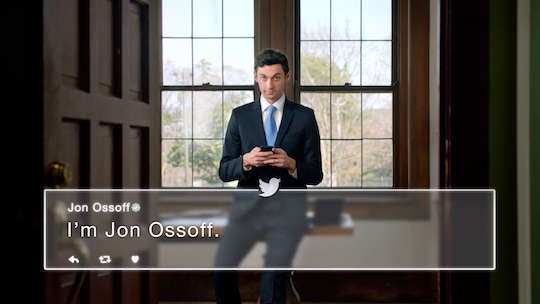Democrat Jon Ossoff has lost the most expensive race for a House seat in US history. Republican Karen Handel beat him by pert near four points, becoming the new representative of Georgia’s sixth congressional district and shattering Democrats’ hope of retaking the House with the aid of a fortunate meteor strike. This election was not very important. To hear FiveThirtyEight and various other pundits tell it, it wasn’t even good for a bellwether. The only thing we can say conclusively is that it occasioned the spending of more money—about $55 million, by the Times’s count—than was ever before spent on a congressional race.
Was it worth it? Not for Democrats, who only managed to wedge another loss for low-agenda centrism into their electoral postseason. I hesitate to say it was worth it for Republicans, either. They squeezed donors tightly to increase by one their majority in a chamber that seats 435. But at least a shitload of consultants got paid—and in an off year, no less. Say what you will about the Democrats’ recent streak of expensive moral victories; at least it’s funded commercials like this:
I’m no veteran campaign operative, but I think the idea for this advertisement was actually an idea for some tweets. What does this message gain from becoming a video? Maybe the campaign wanted to reach voters who watch television instead of using the internet but still admire people who stare numbly at their phones. Perhaps their research found that voters in GA-6 liked Jon Ossoff but wanted him to more strongly resemble a two-episode character on Veep. Or maybe the old ad-budget pie got sliced up in a way that left an off piece.
But wait, you say, ever on the lookout for opportunities to be charitable, this looks like B-roll footage. Maybe this ad was made from the kind of bland, soundless footage campaigns release publicly so that unaffiliated groups can use it in their own spots. The whole tweeting conceit is probably just a clever workaround. But no, the last frames inform us that the ad was paid for by Jon Ossoff for Congress and, almost as improbably, approved by Jon Ossoff.
It’s easy to second-guess the Democratic Party lately, and I think now is a good time to remember that no one else has demonstrated any better understanding of how to beat Republican candidates. But ads like this one explore the limits of campaigning without a strong policy agenda. To a lot of viewers, this is footage of a bland corporate type promising not to be Donald Trump. That doesn’t offer much to voters who worry that bland corporate types are running the country into the ground—a description that covers a substantial portion of the electorate, plus many of the people who hold themselves outside it. It’s funny how limp Democratic messaging has become. But only for a second, and then I get scared.


